Paul BohnArthur J. Schmitt Professor of Chemical and Biomolecular Engineering and Professor of Chemistry and Biochemistry, University of Notre Dame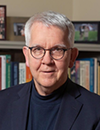 Paul W. Bohn received the B.S. from the University of Notre Dame in 1977 and the Ph.D. from the University of Wisconsin-Madison in 1981, both in Chemistry. After two years at Bell Laboratories, he joined the faculty at the University of Illinois at Urbana-Champaign (UIUC). In 2006, he moved to the University of Notre Dame where he is currently the Arthur J. Schmitt Professor of Chemical and Biomolecular Engineering, Professor of Chemistry and Biochemistry, and Director of the Institute for Precision Health. He served as Editor for the Americas for the RSC journal Analyst 2007-09 and as Chair of the Editorial Board 2010-14. Prof. Bohn is currently co-editor of Annual Review of Analytical Chemistry. His research interests include: (a) integrated nanofluidic and microfluidic chemical measurement strategies for personal monitoring, (b) chemical and biochemical sensing in mass-limited samples, (c) biochemical imaging, and (d) molecular approaches to nanotechnology, areas in which he has over 290 publications and 10 patents. |
Martyn BoutelleProfessor of Biomedical Sensors Engineering, Imperial College London Martyn Boutelle is Professor of Biomedical Sensors Engineering in the Department of Bioengineering, Imperial College London, and Associate Provost for Estates Planning for Imperial College. |
Hsueh-Chia ChangBayer Professor of Chemical and Biomolecular Engineering, University of Notre Dame, Interim Chief Technology Officer, Aopia Biosciences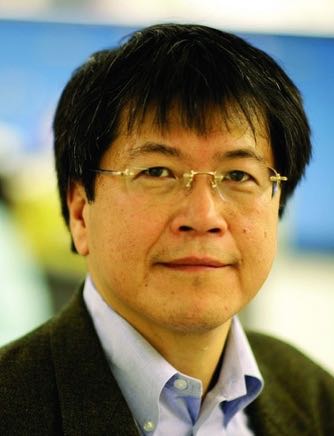 Over 300 publications, with 18,000 citations and h index of 76. He has confounded a startup Aopia Biosciences in 2020 on purification of extracellular vesicles and currently serves as its interim CTO. |
Dino Di CarloArmond and Elena Hairapetian Chair in Engineering and Medicine, Professor and Vice Chair of Bioengineering, University of California-Los Angeles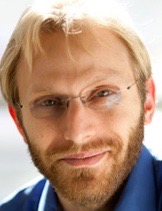 Dino Di Carlo received his B.S. in Bioengineering from the University of California, Berkeley in 2002 and received a Ph.D. in Bioengineering from the University of California, Berkeley and San Francisco in 2006. From 2006-2008 he conducted postdoctoral studies in the Center for Engineering in Medicine at Harvard Medical School. He has been on the faculty in the Department of Bioengineering at UCLA since 2008 and now as Professor of Bioengineering and Mechanical Engineering serves as the Vice Chair of the Department and as the director of the Cancer Nanotechnology Program in the Jonsson Comprehensive Cancer Center. His research pioneered the use of inertial fluid dynamic effects for the control, separation, and analysis of cells in microfluidic devices. His recent work extends into numerous other fields of biomedicine and biotechnology including directed evolution, cell analysis for rapid diagnostics, new amplified molecular assays, next generation biomaterials, and phenotypic drug screening. He has also been a leader in technology entrepreneurship: He co-founded and currently serves on the board of directors of five companies that are commercializing UCLA intellectual property developed in his lab (CytoVale, Vortex Biosciences, Tempo Therapeutics, Forcyte Biotechnologies and Ferrologix). Among other honors he received the Presidential Early Career Award for Scientists and Engineers (PECASE) and was elected a Fellow of the American Institute for Medical and Biological Engineering in 2016, was elected a Fellow of the Royal Society of Chemistry (FRSC) in 2014, was awarded the National Science Foundation (NSF) Faculty Early Career Development award and the U.S. Office of Naval Research (ONR) Young Investigator Award, the Packard Fellowship and Defense Advanced Research Projects Agency (DARPA) Young Faculty Award, and received the National Institutes of Health (NIH) Director’s New Innovator Award and Coulter Translational Research Award. |
Arben MerkoçiICREA Professor and Director of the Nanobioelectronics & Biosensors Group, Institut Català de Nanociencia i Nanotecnologia (ICN2), Barcelona Institute of Science and Technology (BIST)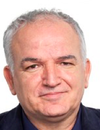 Arben Merkoçi is currently ICREA Professor and director of the Nanobioelectronics & Biosensors Group at Institut Català de Nanociencia i Nanotecnologia (ICN2), part of Barcelona Institute of Science and Technology (BIST). After his PhD (1991) at Tirana University (Albania), in the topic of Ion-Selective-Electrodes (ISEs) Dr. Merkoçi worked as postdoc and senior researcher/invited professor in the field of nanobiosensors and lab-on-a-chip technologies in Italy, Spain, USA and since 2006 at ICN2. Prof. Merkoçi research is focused on the design and application of cutting edge nanotechnology and nanoscience based cost/efficient biosensors. The paper/plastic-based nanobiosensors involve integration of biological molecules (DNA, antibodies, cells and enzymes) and other (bio)receptors with micro- and nanostructures/motors and applied in diagnostics, environmental monitoring or safety and security. He has published around 300 peer review research papers (H index: 61 WOS; 79 GS), supervised 30 PhD students and has been invited to give plenary lectures and keynote speeches in around 200 occasions in various countries. Prof. Merkoçi is Co-Editor In Chief of Biosensors and Bioelectronics and member of Editorial Board of other journals. He is co-founder of two spin-off companies, PaperDrop dedicated to nanodiagnostics and GraphenicaLab to electronic printing. See more details on his CV at: https://www.icrea.cat/security/files/researchers/files-maintenance/full_cv_amerkoci_0.pdf |
Steve SoperFoundation Distinguished Professor, Director, Center of BioModular Multi-Scale System for Precision Medicine, The University of Kansas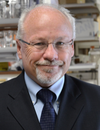 Prof. Soper is currently a Foundation Distinguished Professor in Chemistry and Mechanical Engineering at the University of Kansas, Lawrence. Prof. Soper also holds an appointment at Ulsan National Institute of Science and Technology in Ulsan, South Korea, where he is a World Class University Professor. He is also serving as a Science Advisor for a number of major worldwide companies. Prof. Soper is currently on the Editorial Board for Scientific Reports and Journal of Micro- and Nanosystems. |
Shoji TakeuchiProfessor, Center For International Research on Integrative Biomedical Systems (CIBiS), Institute of Industrial Science, The University of Tokyo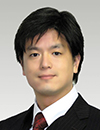 Shoji Takeuchi received the B.E, M.E., and Dr. Eng. degrees in mechanical engineering from the University of Tokyo, Tokyo, Japan, in 1995, 1997, and 2000, respectively. He is currently a Professor in the Center for International Research on Integrative Biomedical Systems (CIBiS), Institute of Industrial Science (IIS), University of Tokyo. Since 2008, he is a director of Collaborative Research Center for Bio/Nano Hybrid Process at IIS. His current research interests include membrane protein chips, bottom-up tissue engineering and biohybrid MEMS. He received several awards including Young Scientists' Prize, the Commendation for Science and Technology by the Minister of Education, Culture, Sports, Science and Technology in 2008, the JSPS prize from the Japan Society for the Promotion of Science in 2010. |
Joseph WangChair of Nanoengineering, SAIC Endowed Professor, Director at Center of Wearable Sensors, University of California-San Diego Professor Joseph Wang, is currently SAIC Endowed Chair and Distinguished Professor in the Department of Nanoengineering at University of California, San Diego. Previously, he was a Professor of the Department of Chemical Engineering at Arizona State University (ASU) and Director of Center for Bioelectronics and Biosensors at the Biodesign Institute. He obtained his higher education at the Technion and being awarded his D. Sc. in 1978. From 1978 to 1980 he served as a research associate at the University of Wisconsin (Madison) and joined New Mexico State University (NMSU) at 1980. From 2001-2004, he held a Regents Professorship and a Manasse Chair positions at NMSU. Since 1980, 20 Ph.D. candidates and 130 research associates and visiting scholars have studied with Professor Wang. |
Paul YagerProfessor, Department of Bioengineering, University of Washington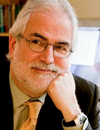 Paul Yager is the Professor in the Department of Bioengineering at the University of Washington, Seattle. Professor Yager served as the The Hunter and Dorothy Simpson Endowed Chair, Department of Bioengineering from 2008-2013. Professor Yager's research focuses on microfluidics and its applications in global health. |
Xueji ZhangProfessor & Director, University of Science and Technology Beijing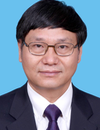 Dr. Xueji Zhang obtained his B.Sc. and Ph.D. from Wuhan University in 1989 and 1994 respectively. He was a postdoc at the National Institute of Chemistry, Slovenia; the Swiss Federal Institute of Technology (ETH), Zurich, Switzerland and at New Mexico State University from 1995 to 1999. He has over 20 years experience in sensors and biomedical research and commercialization. He joined World Precision Instruments Inc. (WPI) in 1999 as research scientist and was promoted to Vice President of Science in 2003 and Sr. Vice President of Science in 2004. In 2009, he was recruited by Chinese Government via the “Global Talent recruitment program” and was appointed as National Professor( the highest honor ) at University of Science & Technology Beijing. Currently, he is director, at Center for BioEngineering & Sensing technology, University of Science & Technology Beijing. He has authored over 300 papers, 8books and 60 patents. His research was cited over 8000 times and his H-index is 45. He has developed numerous biomedical sensors, instruments and devices for commercialization. He also serves as the editor-in-chief of American Journal of Biomedical Sciences and has been a member of the advisory editor board of 19 other international journals. He has received numerous awards and honors including academician of Russian Academy of Engineering, Fellow of Aimbe, Fellow of RCS, and W. Simon Fellow of ICSC-World lab, United Nations. |




